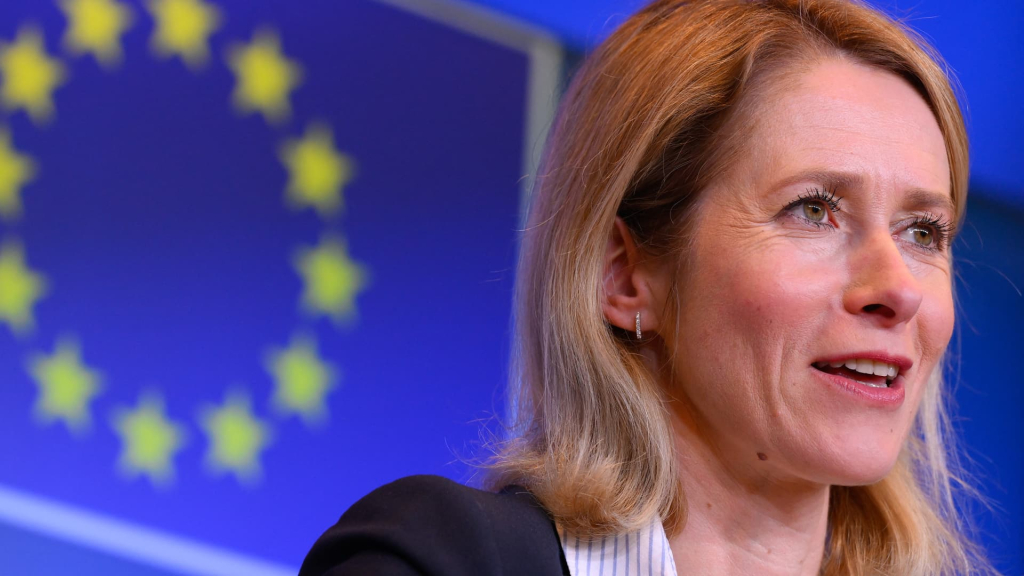European leaders are grappling with the implications of U.S. President Donald Trump’s second term as the initial 100 days have brought unprecedented geopolitical and trade challenges. “It’s unlike anything else we’ve seen before from the U.S. administration,” remarked Kaja Kallas, the European Union’s foreign policy chief, in an interview with Finance Newso’s “Europe Early Edition.”
Describing this period as “very intense” and “disruptive,” Kallas noted the significant level of unpredictability under the current U.S. administration. “This is how we have been operating to try to manage with the new administration,” she stated.
The EU faces critical uncertainties stemming from Trump’s policies related to trade and the ongoing conflict in Ukraine. Trump has implemented a 20% blanket tariff on EU exports to the U.S., which was momentarily reduced to allow for negotiations. Although the EU has prepared countermeasures, these have also been suspended in light of the current developments. Simultaneously, the bloc contends with U.S. tariffs on aluminum, steel, and automobiles.
Even in the scenario where an agreement is reached, the EU anticipates ongoing repercussions from the trade disputes involving the U.S. and partners like China.
The prospect of trade tensions has raised concerns about the potential impact on European economic growth, with inflation projections remaining uncertain. This was highlighted by European Central Bank officials during the recent IMF World Bank Spring Meetings, where “uncertainty” loomed large. Robert Holzmann, governor of Austria’s central bank, expressed that this level of unpredictability had not been experienced for several years. “Unless the uncertainty subsides, by the right decisions, we will have to hold back a number of our decisions,” he cautioned regarding the future of ECB interest rates.
Klaas Knot, president of the Netherlands Bank, likened the current climate of uncertainty to the initial stages of the Covid-19 pandemic, pointing out that the unpredictability surrounding U.S. tariff actions could act as a significant negative factor for growth in the short term.
In contrast, some officials like acting German finance minister Joerg Kukies conveyed a more optimistic view, asserting that the relationship between Europe and the U.S. was not nearing a crisis. He suggested that significant changes would be necessary to erode trust between the two parties.
Concerns also persist regarding Trump’s stance on the Russia-Ukraine conflict, particularly concerning U.S. financial aid and support for Ukraine. Kallas acknowledged the extensive support that the EU has provided to Ukraine, while recognizing the substantial contributions from the U.S. as well. “If they are not supporting Ukraine anymore then it becomes more difficult. But the question is for Europe, can we do this?” she reflected, indicating confidence in monetary means but expressing uncertainty regarding military capabilities. Kallas conveyed hope that the U.S. would “remain on the right side of history.”
While Trump initially claimed he could finish the war in a day, subsequent remarks reflected a shift in that assertion. Although discussions regarding a ceasefire began promptly, tangible progress has been limited. Kallas emphasized the need for increased pressure on Russia to foster a desire for peace.


























